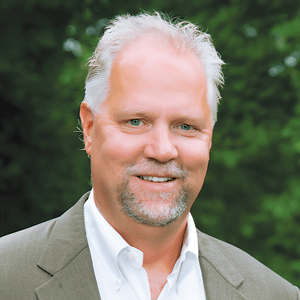The Vancouver Business Journal’s special edition on Philanthropy was scheduled to print today, Aug. 28. However, due to COVID-19, we have not been producing any print editions of the VBJ. This contributed column was scheduled to run in the Philanthropy edition.
I miss Ed Lynch and Ray Hickey.
This community has lost many others in the time since their deaths, but these guys stand out. I use the present tense here with intention and resolve because Ed and Ray truly live on in their actions and their legacies.

I had the extreme great fortune to work with both men on projects over the years. This work included several meetings and conversations. From my notes of those conversations I have actually created a workshop that focuses on a best practices model based on their words. To that end, it is also very fortunate that my first career was as a journalist because I was trained on how to take notes, and the importance of doing so.
And so, as a result, I believe you are in for a treat because most of the words to follow are from Ed and Ray themselves. They echo with wisdom, common sense, truth and enduring power. If you’re lucky you will be able to – as I have done repeatedly with success – squeeze your eyes shut just right and conjure their faces and expressions.
First, before I get to their words, in the event there are readers who aren’t familiar with our subjects, I offer the following snapshots of these two unique individuals.
Ed Lynch
Ed was born in 1920 in Los Angeles, Calif. Even before graduating from Stanford, and serving in the United States Navy, Ed had already served as a foreman at Lockheed Martin. He started at Peter Kiewit in 1957 and retired in 1985 as president of the company, after which he transitioned to philanthropy.
Ray Hickey
Ray was born in 1927 in Victor, Mont. He grew up in Wallace, Idaho, during the Depression, and dropped out of high school in 10th grade. He served in the United States Marine Corps, and then started as a deckhand at Tidewater Barge in 1951. He worked his way up to president and purchased the company in 1983. On retirement he transitioned to philanthropy.
Both men started careers at early ages in companies they would personally lead and transform. Both men served their country in the Military, and served their communities through philanthropy. Neither particularly liked the attention philanthropy brought them, but rather tolerated it as necessary in setting the proper example for future generations. They also each had a hilarious sense of humor, represented in off-hand comments that sprung up from a mixture of intelligence, wit, sarcasm and the certain freedom that success and independent wealth provide. Although I suspect they talked this way long before all that. It was just who they were. And who they were was definitely what you always got.
For Ed and Ray, this industry we call development was first and foremost a personal experience. But they encountered many in the field who practiced it more as a singular transaction, or even worse, a series of singular transactions.
In Ed’s words: “Most development professionals are so busy trying to get into my wallet, they will never get into my checkbook.”
Ray said pretty much the same thing, but in his own way: “(If you…) become my friend,” he said, “that did not happen by accident. A fellow has to work at that with me. And I have to trust your motives.”
Lesson No. 1: Development is relational
“I can tell when someone is selling me, even if they’re good at it,” Ray said on one occasion in his office on the Columbia River. “I got my education out there,” he smiled, pointing to the waterway. “I figured out some things, I guess.”
“You have to be willing to put up with an old codger like me,” Ed told me once in his kitchen. “You have to be interested to start with. I was successful in engineering because I was genuinely excited and interested in not only the product, but the process itself.”
Lesson No. 2: Development is hard work, but it shouldn’t look like it
“I don’t want to be somebody’s work goal or plan checkoff,” Ed said when asked what bothered him about philanthropy. “And I don’t want to be a number, even though I have always liked numbers.”
“I worked scrambling around on tugs and barges for much of my life. I don’t need to be part of someone else’s work,” said Ray.
Lesson No. 3: Have some fun with us!
“I will always take a first meeting,” said Ed. “But I am more careful about the second.”
“I already know why you’re coming, and it isn’t because I’m charming,” said Ray. “But try to relax and have some fun. I do.”
Lesson No. 4: Show some appreciation
“There’s not enough service after the sale in the development business if you ask me,” Ed said with a smile on the subject of how he likes to be treated. “Show some appreciation. It goes a long way.”
“Despite what it may seem like, it wasn’t easy to make this money. Some folks think it should be easy to give it away. Don’t forget to say thank you,” said Ray.
Lesson No. 5: Give it a rest once in a while
“I have more to me than money or projects,” said Ed. “I am actually a pretty interesting person, even if I say so myself.”
“At my age, I have to look forward to seeing you,” said Ray with a wink. “Otherwise I will see you coming, if you get my drift.”
Takeaways
Ed and Ray had their own ways of coming to a point, balancing the art form of less is more against the science of measurement and assessment. It allowed them to quickly distinguish not only the worthy projects, but also the people presenting them.
I often channel the two of them when I am endeavoring to do the same. That should be a best practice all by itself, I think.
Mike Westby is the president and CEO of Westby Associates, Inc. in Vancouver. He can be reached at mtwestby@westbyassociates.com.



